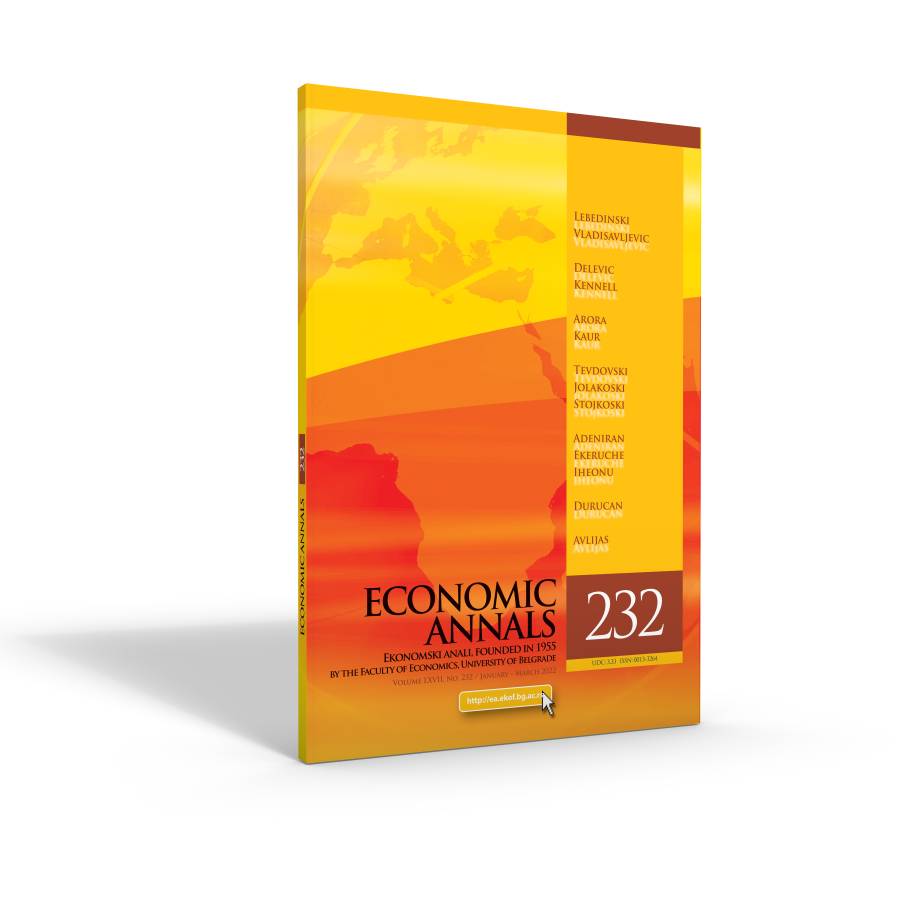THE QUALITY OF BUDGETARY INSTITUTIONS IN AFRICA: EXPLORING THE DRIVERS
##plugins.themes.bootstrap3.article.main##
##plugins.themes.bootstrap3.article.sidebar##
Adedeji Adeniran
Mma Amara Ekeruche
Chimere O. Iheonu
Mma Amara Ekeruche
Chimere O. Iheonu
Abstract
This paper examines the economic and political determinants of the observed variations in the quality of budgetary institutions in 31 selected African countries from 2005 to 2017. The quality of budgetary institutions is measured using the World Bank’s Country Policy and Institution Assessment score. The empirical analysis utilises Ordinary Least Squares, two-stage least squares, two-step generalized method of moment, and the random effects probit and mixed effects models. The most significant and robust determinants of budgetary institution quality were found to be the level of external debt, foreign aid, the extent of control of corruption, and the level of voice and accountability. The results also reveal that foreign aid, control of corruption, and voice/accountability increase the probability of an improved quality of budgetary institutions. These findings resonate with the broader discussion on the role of political will and the need for the preferences of domestic actors to be aligned in order to deliver institutional reform in Africa.
##plugins.themes.bootstrap3.article.details##
Keywords
budgetary institution, crisis hypothesis, common pool problem, fiscal performance, Africa
JEL Classification
C23, H61, P16
Issue
Section
Articles
How to Cite
Adeniran, A., Amara Ekeruche, M., & O. Iheonu, C. (2022). THE QUALITY OF BUDGETARY INSTITUTIONS IN AFRICA: EXPLORING THE DRIVERS. Economic Annals, 67(232), 127-152. https://doi.org/10.2298/EKA2232127A
How to Cite
Adeniran, A., Amara Ekeruche, M., & O. Iheonu, C. (2022). THE QUALITY OF BUDGETARY INSTITUTIONS IN AFRICA: EXPLORING THE DRIVERS. Economic Annals, 67(232), 127-152. https://doi.org/10.2298/EKA2232127A

